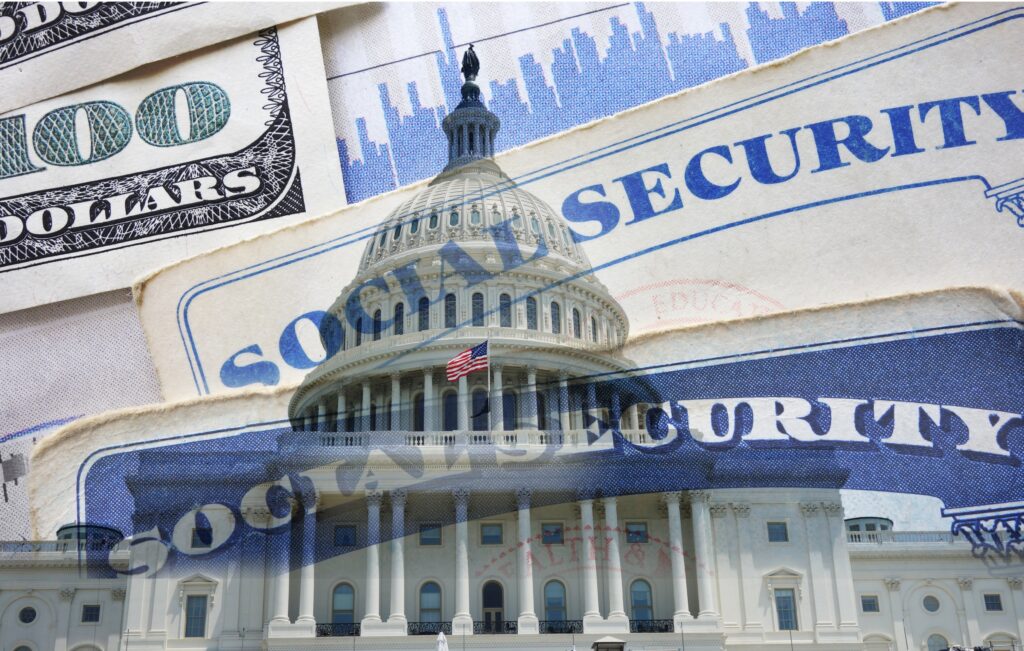Norm Haug, RSSA®
December 21, 2024 News & Updates

December 21, 2024 — For Immediate Release
In a landmark decision, the U.S. Senate has passed H.R. 82, the Social Security Fairness Act of 2023, with a resounding bipartisan vote of 76-20. This legislation repeals two provisions—the Windfall Elimination Provision (WEP) and the Government Pension Offset (GPO)—that have long reduced Social Security benefits for public servants and retirees receiving pensions from non-Social Security-covered employment.
The bill, previously approved by the House of Representatives with an overwhelming bipartisan vote of 327-75 on November 12, 2024, now heads to President Joe Biden’s desk for final approval. His signature is anticipated within the next few days.
Once signed into law, this legislation will bring long-awaited relief to millions of Americans by restoring fairness to the Social Security system.
Understanding the Windfall Elimination Provision (WEP) and Government Pension Offset (GPO)
The Windfall Elimination Provision (WEP) and the Government Pension Offset (GPO) have been contentious components of Social Security for decades. These provisions primarily impact public servants, such as teachers, firefighters, and police officers, who worked in positions not covered by Social Security.
Together, these provisions have impacted millions of public servants, penalizing them for careers dedicated to serving their communities.
Key Impacts of H.R. 82
The passage of H.R. 82 will bring transformative changes to Social Security, ensuring fairness and equity for beneficiaries.
Who Will Benefit?
The Congressional Budget Office estimates that approximately 2.5 million retirees will see their benefits increase as a result of this legislation.
States with significant numbers of public servants and non-Social Security-covered pensions are expected to experience the greatest impact, including:
Financial Implications and Concerns
While H.R. 82 has been widely celebrated for addressing longstanding inequities, it has sparked concerns about its fiscal impact. The Congressional Budget Office projects that repealing the WEP and GPO will cost approximately $196 billion over the next decade.
This significant expenditure is expected to accelerate the depletion of the Social Security Trust Fund by six months, heightening the urgency for broader Social Security reform.
“This is a momentous occasion for Social Security fairness,” said Martha Shedden, President of RSSA. “As valuable as this bill is for a small group of beneficiaries, it underscores the need for comprehensive reforms to ensure the long-term solvency of the Social Security program.”
RSSA’s Commitment to Advisors and Beneficiaries
As thought leaders in Social Security education and planning, RSSA is committed to ensuring that advisors and beneficiaries have the tools and knowledge needed to navigate these historic changes.
What’s Next for Beneficiaries?
With the Senate’s approval and President Biden’s expected signature, beneficiaries are encouraged to take the following steps:
The passage of H.R. 82 represents a historic milestone in Social Security reform, bringing long-awaited relief to millions of Americans. However, it also underscores the need for continued efforts to address the program’s broader fiscal challenges.
At RSSA, we will continue to monitor this development closely and provide timely updates to advisors and beneficiaries. Stay informed and let us help you navigate the evolving Social Security landscape.
For questions or further updates, contact:
RSSA Media Relations
Pamela Kweller
media@rssa.com